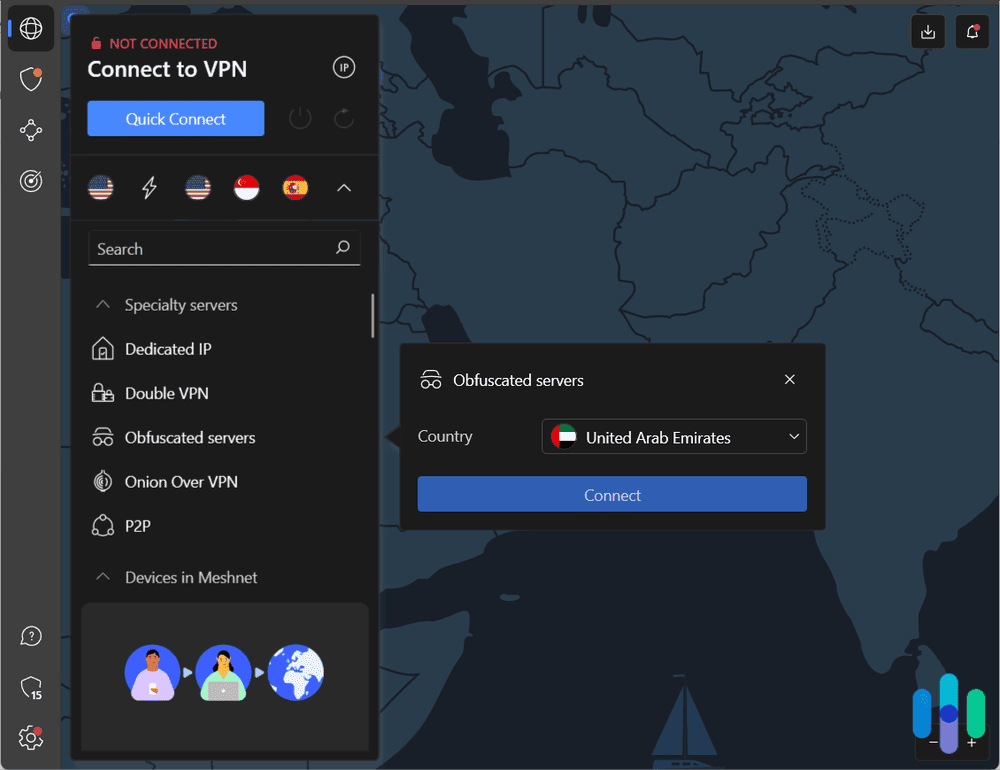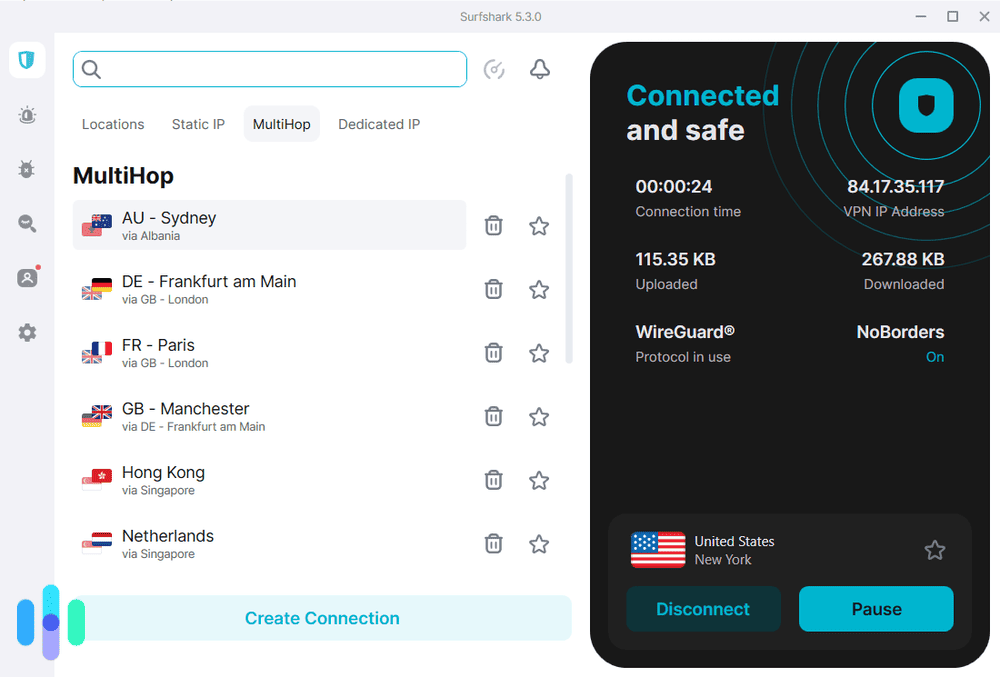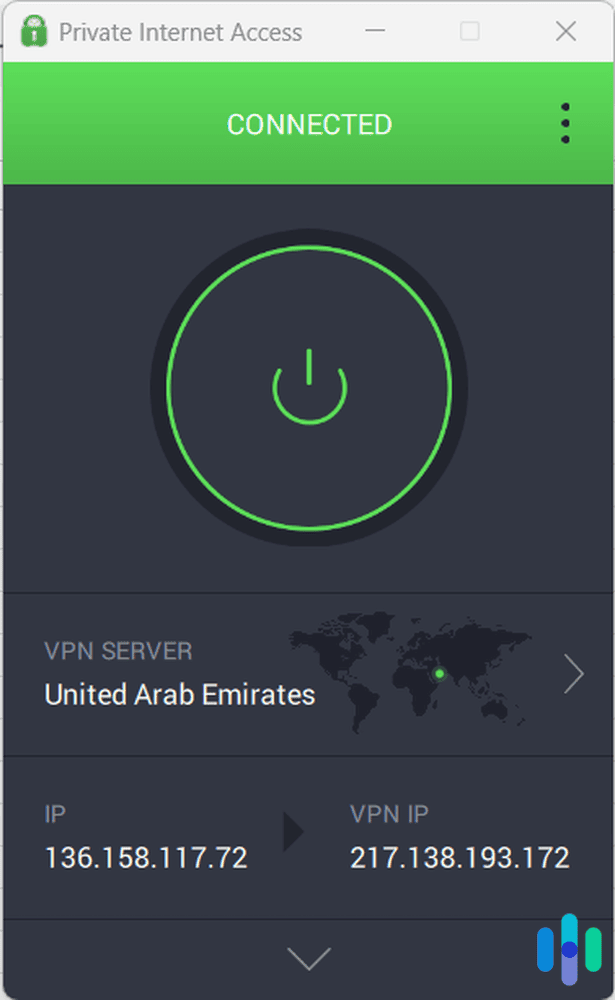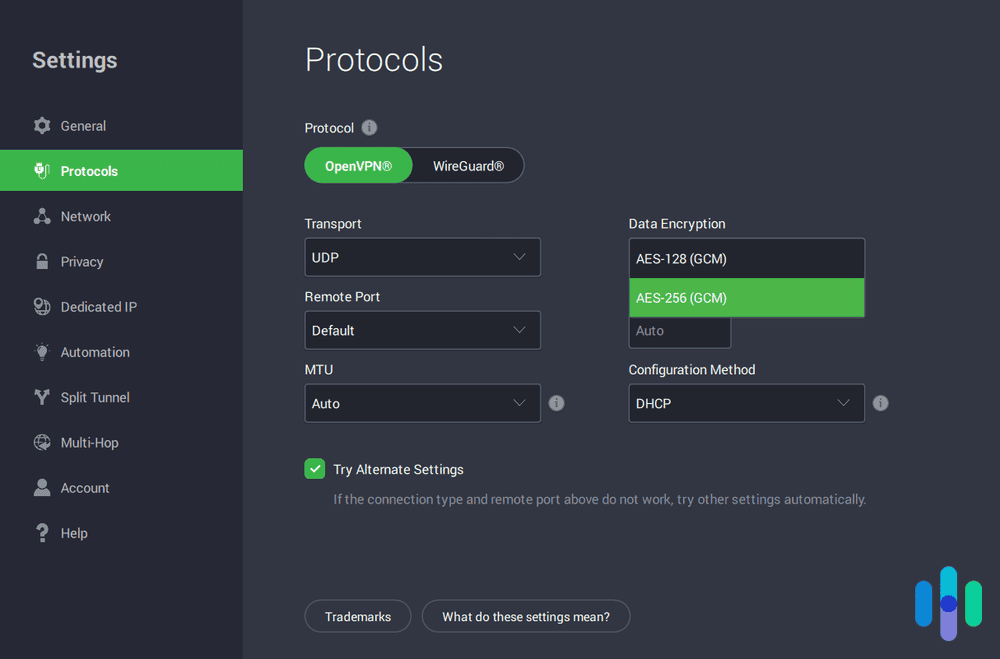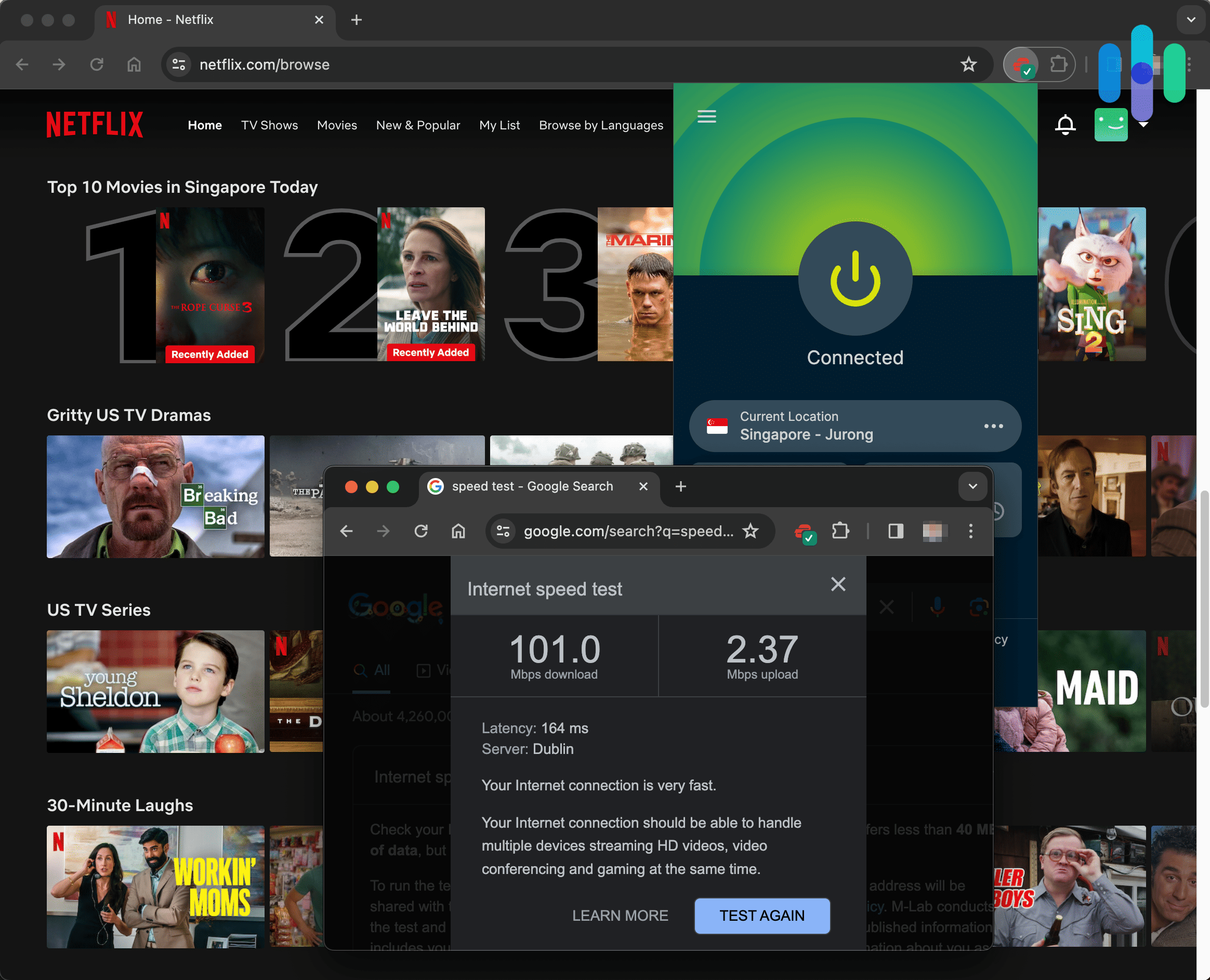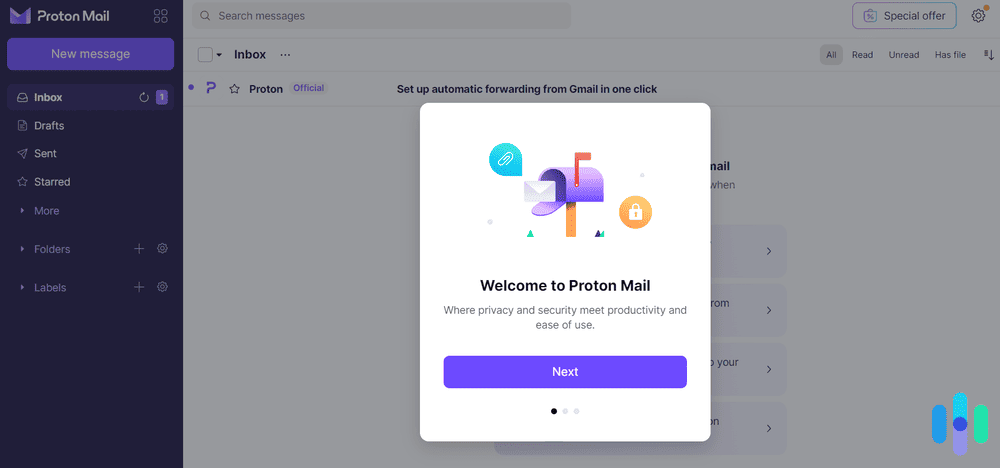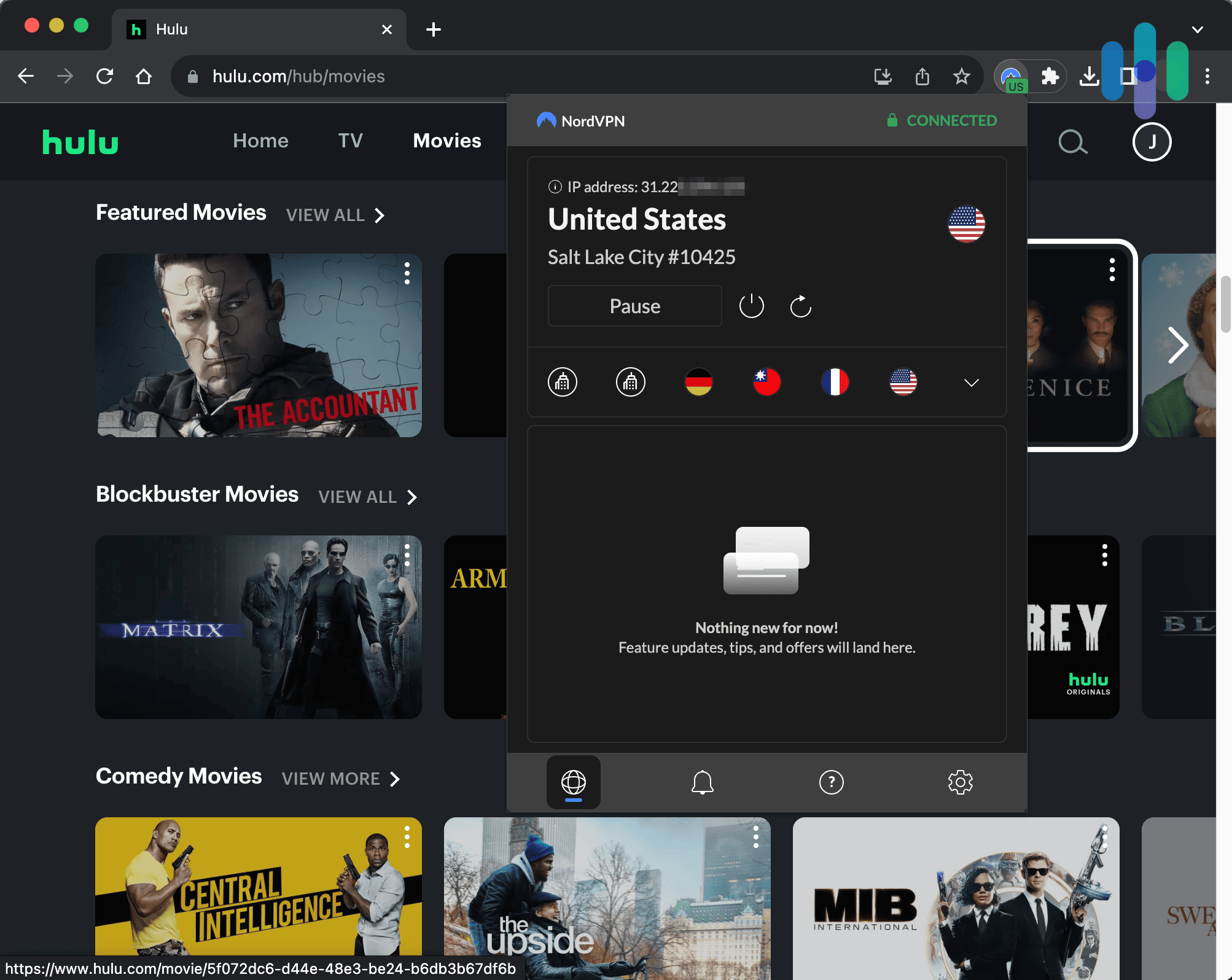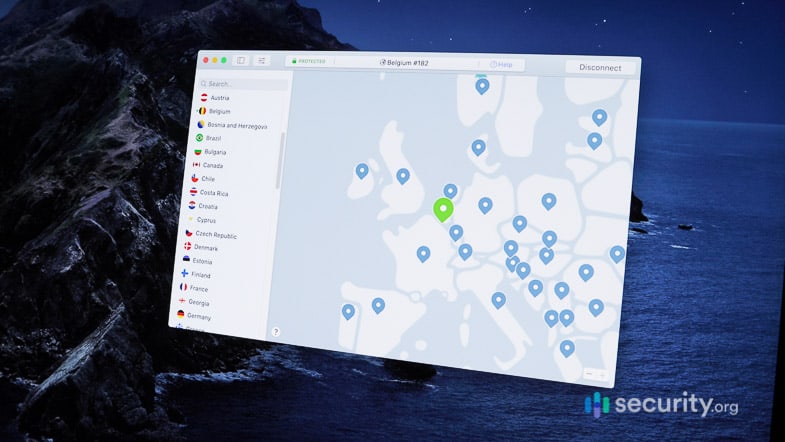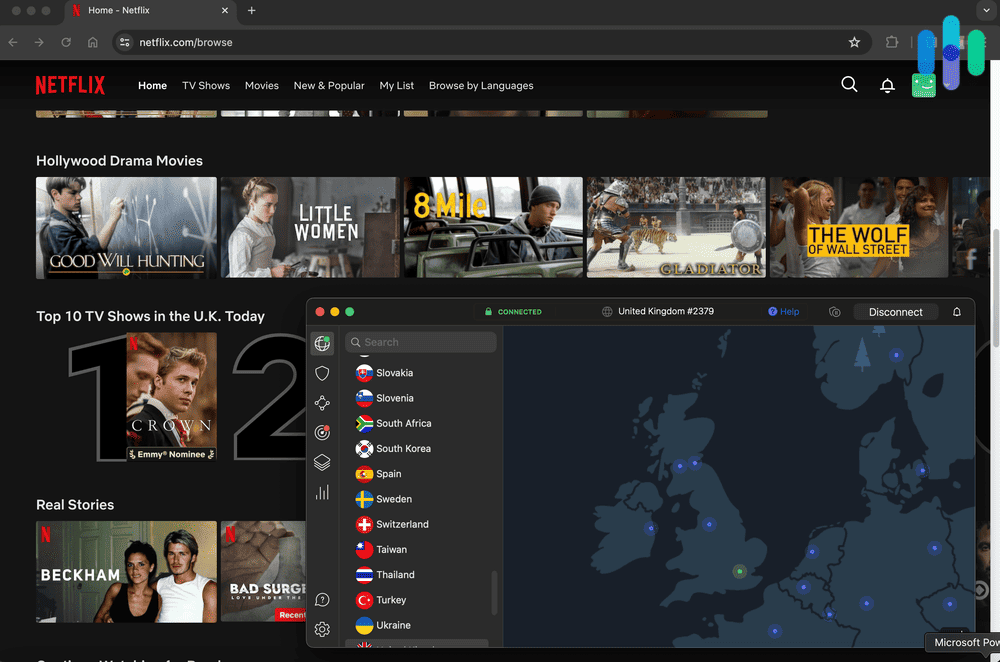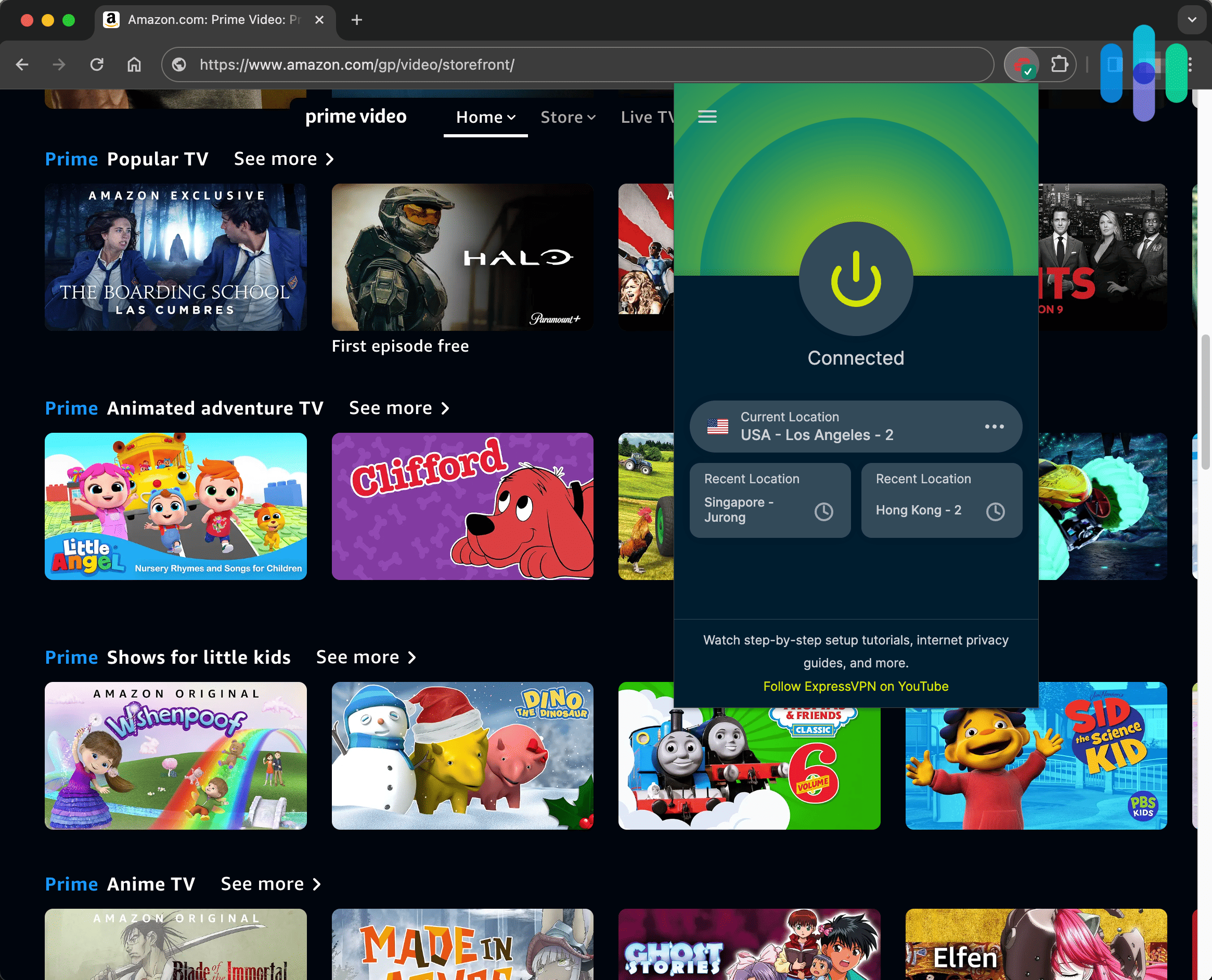The Best VPNs for the United Arab Emirates
NordVPN is our preferred pick, with its safe torrenting P2P servers and strict privacy policy outside of UAE jurisdiction.
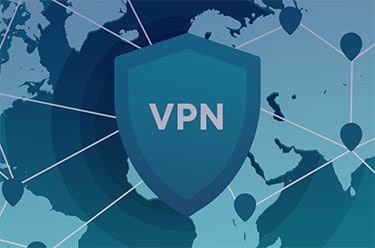

- Camouflage mode means you can use the VPN without the government knowing you’re using a VPN
- Provides safe torrenting in the United Arab Emirates
- With strict privacy policy, UAE law enforcement can never force the company to turn over your personal data

- Servers in the UAE mean you can always find a strong connection when you’re in-country
- Lets you stream content from the U.S. when you’re traveling in the UAE
- Zero leaks and a kill switch prevent the government from monitoring you, even if you should lose the VPN connection

- Allows you to access government-blocked sites and apps
- Dynamic IP addresses mean the UAE government can’t track your online movements
- AES-256 encryption conceals all of your personal data from UAE hackers and identity thieves
If you use the internet while visiting the United Arab Emirates, you’ll be in for an unpleasant surprise. A decent chunk of your favorite sites and services are probably blocked. WhatsApp? Not allowed. Online gambling? Banned. Controversial political content? Censored. To get around those restrictions – or avoid government surveillance – you’ll need a VPN.
You might be wondering if VPNs are even allowed in the UAE. Good news, sort of: using a VPN in the UAE is not technically illegal. It only becomes illegal if you use the VPN to commit a crime or hide a crime you committed. That’s pretty much the case everywhere else, even in the U.S. where VPNs are completely legal. What makes the UAE different is that there are more things considered illegal there – even things we take for granted like FaceTime and Skype for personal use.
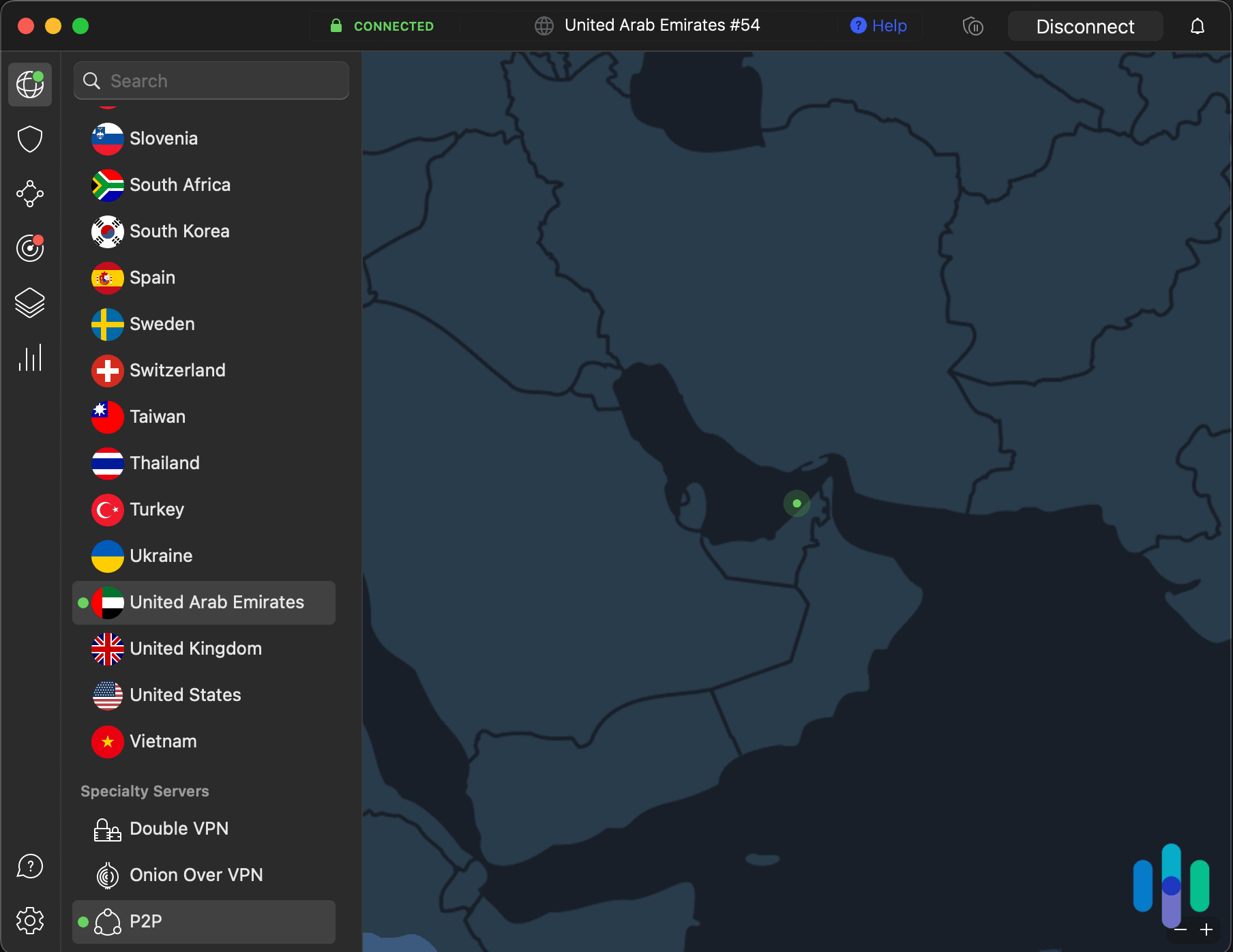
Moreover, the UAE gets a low internet freedom score from Freedom House, a non-profit that looks at world policies regarding civil and political rights.1 According to its latest Freedom on the Net report for the UAE2, the country is one of the most connected countries in the world, but because the UAE’s two main internet providers (Etisalat and Du) are controlled by the state, the government has control over the flow of information.
That is why using a VPN is highly recommended in the UAE, whether you’re visiting for leisure or conducting business. But which VPNs are the best to use in the UAE?
>> More Info: Best VPNs of 2025
The Best VPNs That Work In The UAE
- NordVPN - Best VPN with Obfuscated Servers
- Surfshark - Best VPN with Multihop
- Private Internet Access - Best for Business and Offices
- ExpressVPN - Best for VoIP Services
- Proton VPN - Best VPN with Privacy-Focused Extras
What To Look For in VPNs
When choosing a VPN to use, especially in a country with higher online restrictions like the UAE, the first thing we should look into is how secure a VPN is. For this, we considered two things – VPN encryption and tunneling protocol.
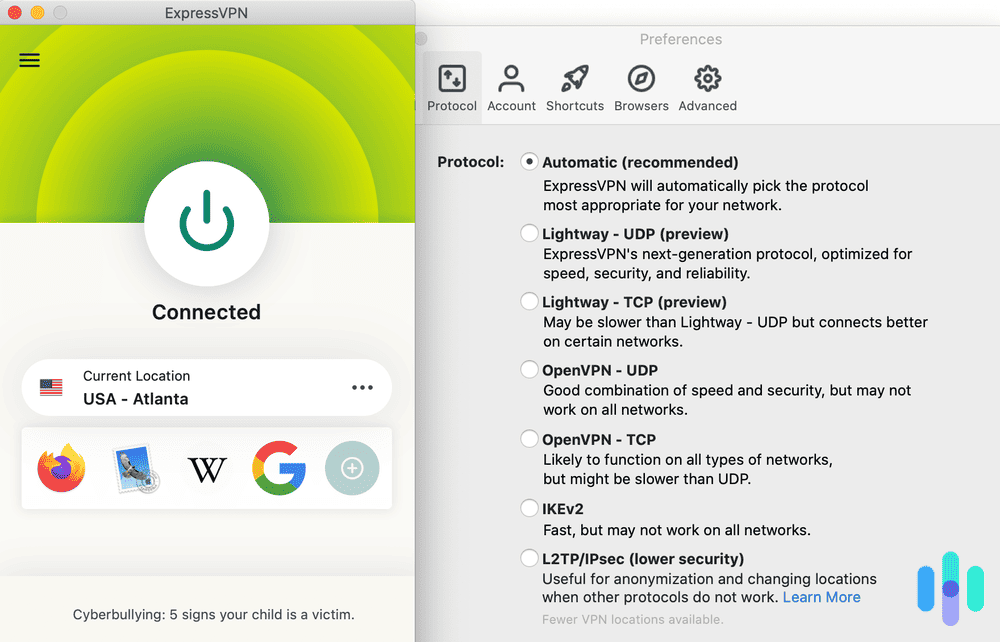
- Encryption: VPNs encrypt online traffic to hide our online activities from internet providers and the government. This keeps us private, and at the same time, gives us the freedom to access services and sites that are blocked.
- Protocol: A VPN protocol, on the other hand, decides how our traffic is tunneled from our devices to the VPN’s server. Although VPNs are legal in the UAE, internet providers like Etisalat impose VPN blocks. Only one VPN protocol is known to work – OpenVPN. Fortunately, a lot of VPNs use this protocol.
Next, we should look into the privacy practices of the VPN company itself. Our privacy – and digital safety – rests on the hands of the VPN company, so there’s no room for error here. We should only go with a VPN we know we can trust, ideally one with a “no-logs” policy and that has submitted its policies and server infrastructure to unbiased third-party audits.
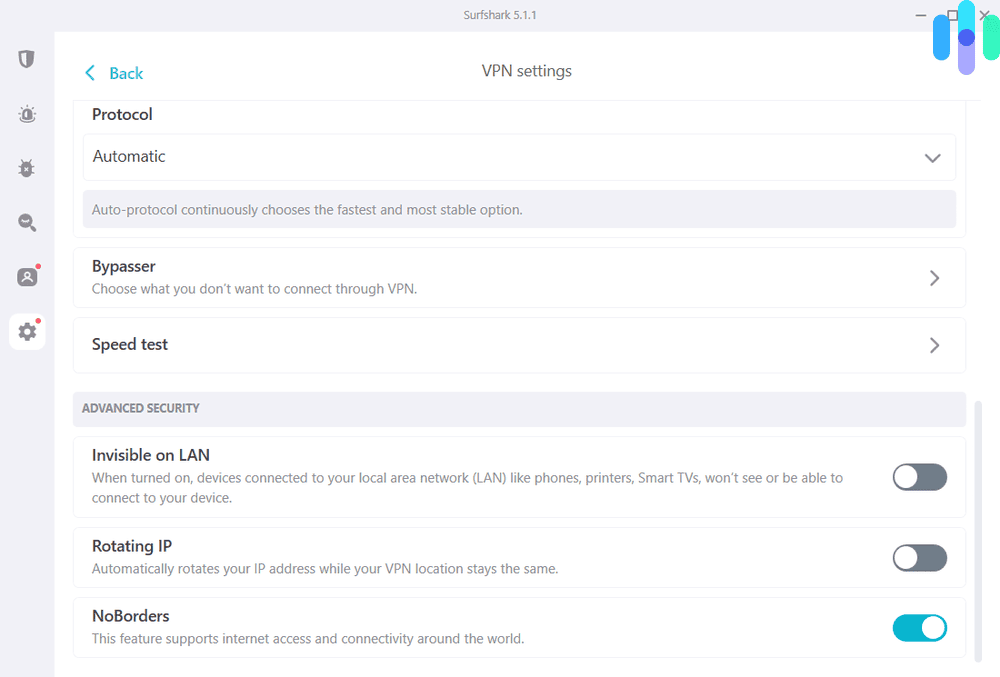
>> Related: The Best “No-Logs” VPNs
Last but not least, we should take into account what the VPN offers in terms of features, like how many servers it has, where those servers are located, whether or not it comes with all necessary VPN features, and so on.
By taking those into consideration, we were able to handpick the best VPNs to use in the United Arab Emirates. Additionally, we’ll discuss why we picked each of them and what they’re best used for. So let’s dig right into it.
VPN Specs: Comparing The Top UAE VPNs
| System |
NordVPN

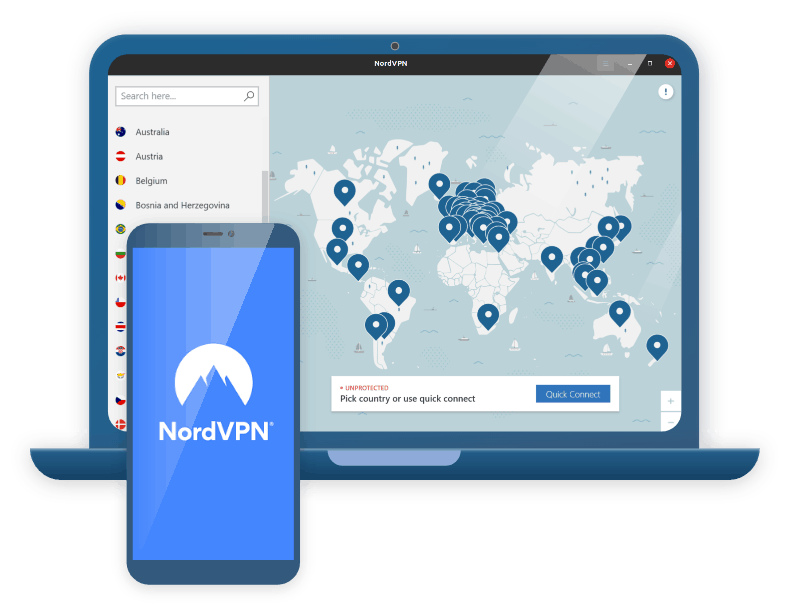
|
Surfshark


|
Private Internet Access

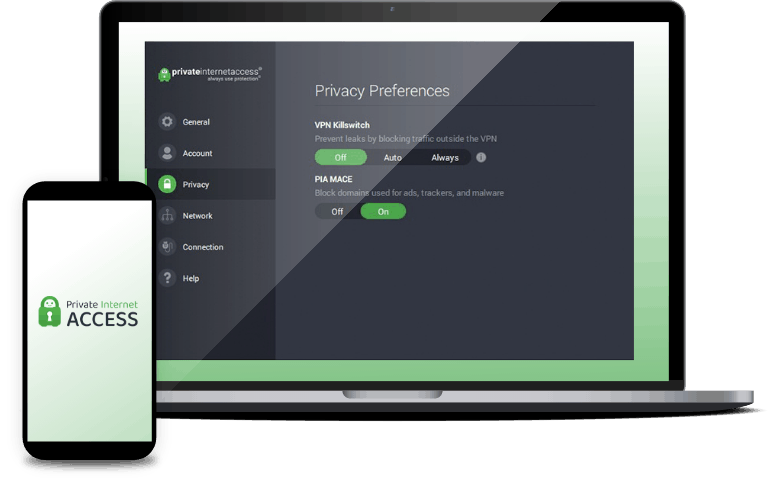
|
ExpressVPN

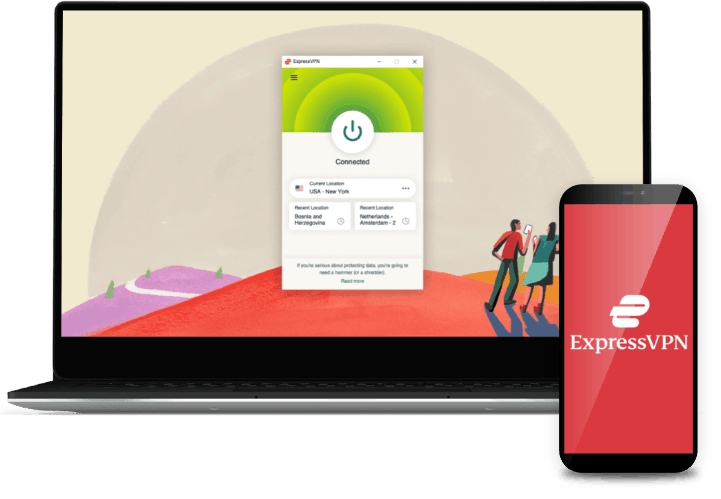
|
Proton VPN
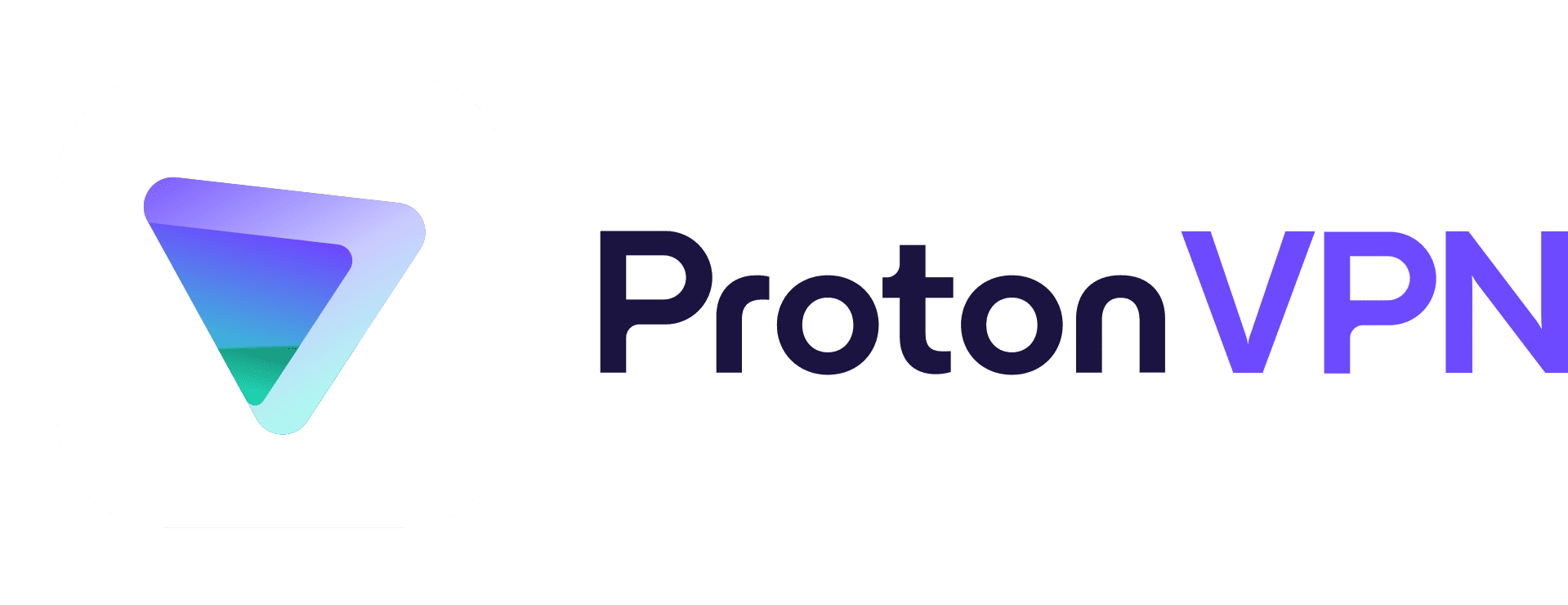
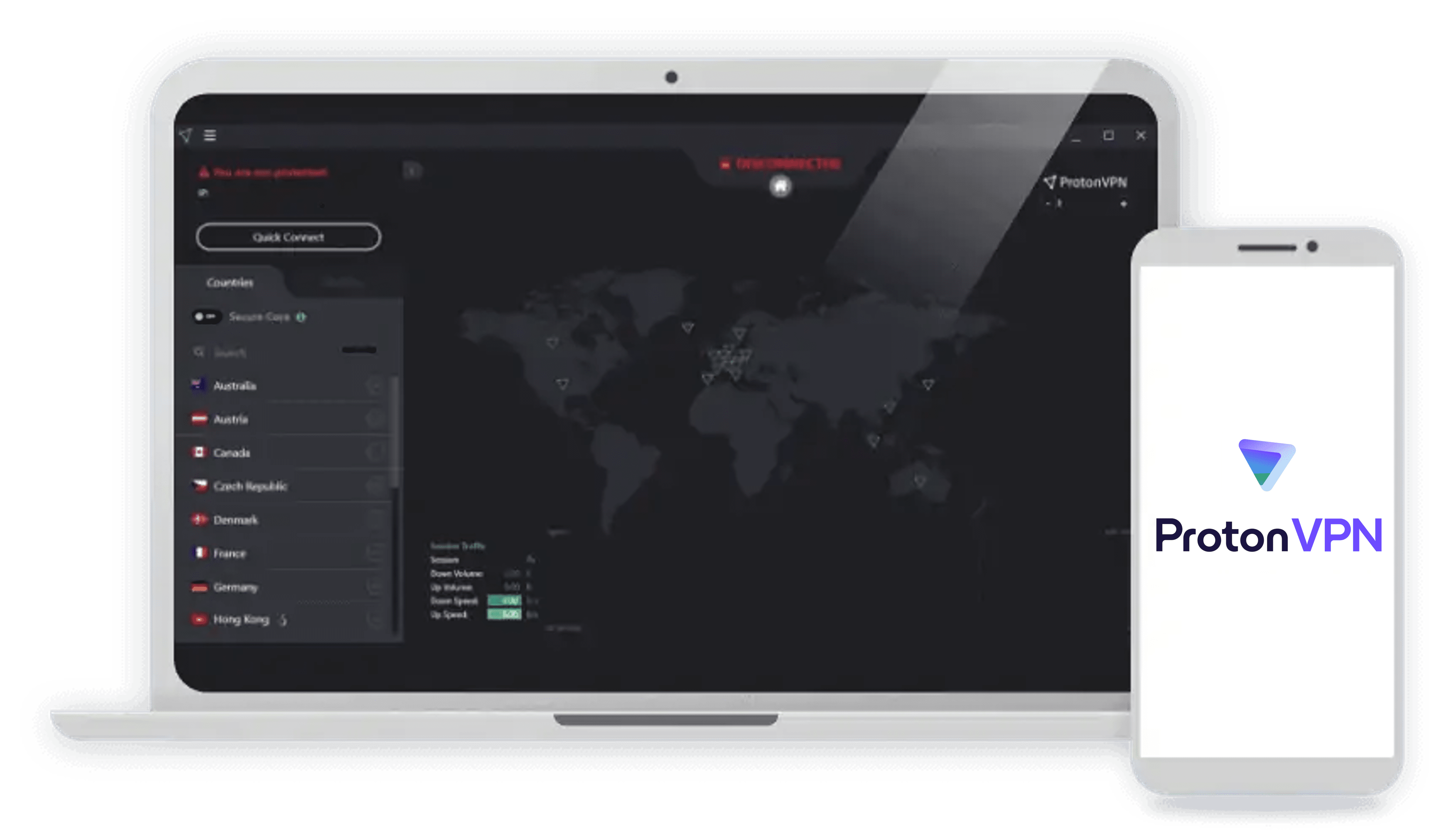
|
|---|---|---|---|---|---|
| Ranking | 1st | 2nd | 3rd | 4th | 5th |
| Ratings | 9.7/10 | 9.5/10 | 9.4/10 | 9.1/10 | 8.8/10 |
| Best monthly price | $3.09 | $2.49 | $2.19 | $8.32 | $0 |
| OpenVPN | Yes | Yes | Yes | Yes | Yes |
| Encryption standard | 256-bit AES | 256-bit AES | 128-bit or 256-bit AES | 256-bit AES | 256-bit AES |
| No-logs policy | Yes | Yes | Yes | Yes | Yes |
| Audited | Yes | Yes | Yes | Yes | Yes |
| Multi-hop | Yes | Yes | Yes (via proxy) | No | Yes |
| Kill switch | Yes | Yes | Yes | Yes | Yes |
| Split tunneling | Yes | Yes | Yes | Yes | Yes |
| Server locations | 111 countries | 100+ countries | 91 countries | 105 countries | 91 countries |
| Read Review | NordVPN Review | Surfshark Review | Private Internet Access Review | ExpressVPN Review | Proton VPN Review |
Deep-Dive of the Best VPNs in the UAE
-
1. NordVPN - Best VPN with Obfuscated Servers
View Plans Links to NordVPNProduct Specs
Multihop Yes Obfuscated Servers Yes Kill Switch Yes Split Tunneling Yes Netflix Yes Torrenting Yes Security
NordVPN uses nothing but top-notch technology to safeguard its users’ privacy. For tunneling, it offers NordLynx and OpenVPN. NordLynx is the default protocol, developed by NordVPN itself. While we found that it’s speedy and reliable in the U.S. (NordVPN is one of the fastest VPNs), we saw from numerous user reviews that it doesn’t work in the UAE, especially if Etisalat is your internet provider. That’s why we recommend changing NordVPN’s protocol to OpenVPN as soon as you’re done setting up the VPN.
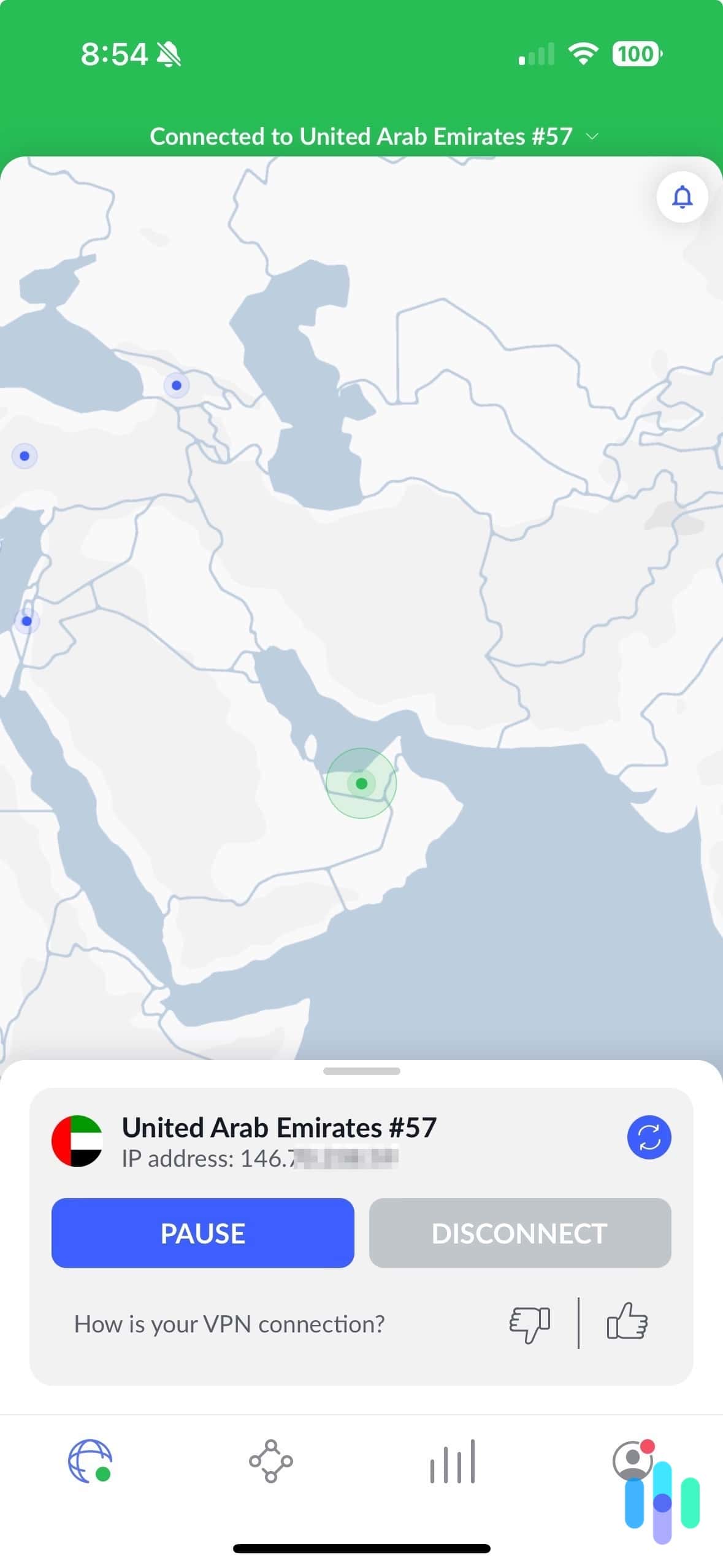
NordVPN connected to United Arab Emirates on an iPhone For encryption, OpenVPN connections from NordVPN always use 256-bit AES. It’s non-customizable, so every time you connect, you know you’re getting unbreakable encryption. 256-bit AES is the industry standard, trusted by even the U.S. military.3
Privacy
NordVPN backs up its strong VPN connections with a principled privacy policy. It doesn’t collect browsing information, so while its servers can technically access your traffic, it doesn’t keep logs of which websites you’re visiting.
We also saw NordVPN pass numerous independent audits in the past few years. It was actually one of the first VPNs to submit its policies to an audit; its first one took place in November 2018.4 It was a bold move to prove its transparency and trustworthiness, and since then, we started seeing other prominent VPNs adopt the practice.
>> Learn More: Do VPNs Hide Your Browsing History?
Features
NordVPN’s VPN apps are chock-full of features. One of the features we consider essential is the kill switch. We’re big believers that a VPN is necessary whenever we’re connecting to the internet, and so we don’t want our devices to go online unless a VPN is cloaking our connection. NordVPN’s kill switch ensured that. Whenever the NordVPN was turned off, whether of our own accords or due to an interrupted connection, the kill switch stopped all internet communications from our devices. That’s one way we make sure we’re always private online.
>> Related: Data Privacy: What Websites Collect and How To Opt Out
What We Like
- Large server network with 6,200 servers in 111 countries
- Server in Dubai
- Reliable OpenVPN connections
- Specialty servers with obfuscations
What We Don’t Like
- No nearby servers outside the UAE
- OpenVPN is slower than NordLynx
- Obfuscated servers only work with OpenVPN
- Limited to six connections at a time per account
NordVPN is no doubt a strong option. We’ve tested it numerous times, and it has proven time and again why it’s one of the top VPNs right now. It’s one of the few VPNs that can work in China, despite the country’s ban on VPNs. Even in less restrictive countries, it helps private internet users stay safe from government spying. Better still, NordVPN is affordable for the features it offers. It costs a minimum of $3.09 per month with a two-year plan. If you are up for a two-year plan, Surfshark becomes even more affordable than NordVPN costing $2.49 per month for the basic plan. Take a read through our Surfshark vs NordVPN comparison to see which is right for your next trip to the UAE.
NordVPN obfuscated server in the United Arab Emirates One of NordVPN’s best features for users in the UAE is called obfuscation. All VPNs can scramble your traffic to hide its content from ISPs, governments, and hackers, but VPN traffic looks a certain way that makes it easily detectable. They’re kind of like armored trucks – you don’t know exactly what they’re transporting, but you know there’s something valuable inside. That’s why ISPs in the UAE can easily spot and block users who are using a VPN.
NordVPN offers obfuscated servers. They are under Specialty Servers, and there’s one right in the UAE. Obfuscated servers use various tunneling techniques to camouflage VPN traffic and make it look like regular internet traffic. We normally use obfuscated servers to connect to NordVPN when we encounter networks that block VPNs – like office or school networks – but if you find yourself having difficulties bypassing Etisalat VPN blocks, obfuscation is worth a try.
>> Also See: The Best VPNs That Can Bypass School Network Restrictions
-
2. Surfshark - Best VPN with Multihop
View Plans Links to SurfsharkProduct Specs
Multi-hop Yes Camouflage Mode Yes Kill switch Yes Split Tunneling Yes Netflix Yes Torrenting Yes Security
Surfshark is another VPN that uses top-level encryption (256-bit AES) and various VPN protocols. But of course, OpenVPN should be the go-to protocol if you’re connecting from the UAE. So first order of business after setting up Surfshark: We set up its OpenVPN connection. We found that the default setting is “Automatic,” which means it chooses the best protocol for the server you’re connecting to, but with a quick visit to its settings, we were able to change Surfshark’s default tunneling to OpenVPN.
>> Learn More: VPN How-Tos – Everything You Need to Use VPNs Like A Pro
Privacy
Next to NordVPN, Surfshark is another VPN that regularly undergoes third-party audits. The most recent one was done by Cure53, a German firm, back in May 2023. That audit had huge significance because just before it, Surfshark started logging IP addresses of users. Bear in mind, Surfshark deletes the information within 15 minutes after a session ends, so it’s not a huge red flag, but to clear up concerns, Surfshark underwent a server infrastructure audit.
IP addresses are stored in VPN servers. That’s why the audit was significant. By passing Cure53’s tests, Surfshark proved that its server infrastructure follows privacy protocols to the dot, including deleting stored IP addresses.
>> Check Out: What Can Someone Do With Your IP Address
Features
Just like NordVPN, Surfshark is a feature-rich option. It offers obfuscation under the guise of a feature called Camouflage Mode, and it also features a kill switch. We also like that Surfshark has an easy-to-use split tunneling feature, which we usually put to use when we’re multi-tasking.
Normally, when we connect to Surfshark, all our device’s internet communications pass through the VPN tunnel. However, there are websites or apps that are not VPN-friendly. For example, for security, some online banking platforms don’t allow VPNs. We could bypass that with obfuscation, obviously, but an easier method is to use split tunneling so that the bank’s website just automatically bypasses the VPN. Our connection to the site won’t be protected by Surfshark, but at least we’re able to manage our finances with ease.
What We Like
- Obfuscation via Camouflage Mode
- Dynamic multihop (customizable locations)
- Affordable plans starting at $2.49 per month
- Easy to use apps
What We Don’t Like
- Sometimes has trouble establishing OpenVPN connections
- No specialty servers (for streaming, gaming, etc.)
- Collects IP addresses during sessions
- Overall lower speeds than other options
Surfshark subscriptions cost a minimum of $2.49 per month if you sign up for two years, which is why we believe it’s one of the most affordable VPN options out there. Despite that, it’s still a strong choice, especially if we take into account the fact that it offers Dynamic Multihop.
Multihop is a fairly common privacy feature. It connects you to two VPN servers, thus making your connections extra secure. It’s like putting your data in a safe, and then putting that safe inside another, bigger vault.
Surfshark Dynamic Multihop Surfshark’s Dynamic Multihop stood out because we were able to customize it and choose the two servers we’re going to be connected to. That way, we controlled which country we changed our IP address to. With other VPNs that offer multihop, there are pre-set server pairings. For example, with NordVPN, we only had nine options, none of which are close to UAE, so speeds are likely going to be slower.
With Surfshark, we recommend choosing an entry location (location of the first server) within or close to the UAE for faster speeds. There’s one right in Dubai and another in Saudi Arabia. For the exit location, which will determine your new IP address, you can choose any country you like. For example, if you’re trying to get a U.S. IP address to access Hulu, choose a server in the U.S. If the location doesn’t matter, though, like if you’re only using multihop to increase your privacy, choose a server closest to you.
>> Related: Best VPNs for Hulu
-
3. Private Internet Access - Best for Business and Offices
View Plans Links to Private Internet AccessProduct Specs
Multihop Yes Obfuscated Servers Yes Kill Switch Yes Split Tunneling Yes Netflix Yes Torrenting Yes Security
Private Internet Access offers something unique because it allows users to choose between two encryption standards: The gold-standard 256-bit AES and the slightly lesser but faster standard 128-bit AES.
Here’s how we took advantage of that: For normal browsing, we used 256-bit. It’s super secure, and with Private Internet Access’ generally fast connections, we had no problem surfing the web. For activities that require faster speeds but not as strong protections – such as streaming and online gaming – we used 128-bit. It kept our speeds optimized for such occasions, while also giving us enough encryption and privacy.
Private Internet Access VPN connected to a server in the United Arab Emirates Privacy
Private Internet Access, it seems, is all for giving users options. That reflects in its privacy policy, as well. In addition to not logging IP addresses and browsing histories, PIA made it optional for users to let the VPN gather statistical data and user metrics – things like which operating system your device is using, the version of the PIA app you’re running, and whether connections are manually (i.e. you clicked the Connect button) or automatically established.
Those types of data collected are anonymized. This means they can’t be tied back to the user they came from and thus are safe to be logged, but PIA still makes collection of those types of data voluntary.
Features
Private Internet Access isn’t lacking in terms of features, but we found that some of its features are substandard compared to Surfshark and NordVPN. For example, while it offers multihop connections, it doesn’t actually connect you to two VPN servers. It connects to a proxy server (learn the difference between proxy and VPN here), which doesn’t offer encryption, and then connects to a VPN server. That’s only one layer of encryption.
Private Internet Access VPN’s protocol settings On the bright side, we found PIA’s split tunneling more customizable than both Surfshark and NordVPN. In addition to being able to exclude apps and websites from VPN tunnels, we were also able to set apps and websites that can only connect to the internet via a VPN. For example, we always want to be connected to a VPN when torrenting, so we set our uTorrent app to route all traffic through PIA.
» Further Reading: How To Download Torrent With A VPN
What We Like
- Optional statistical data logging
- Unlimited simultaneous connections
- Advanced split tunneling
- Affordable subscriptions
What We Don’t Like
- Substandard VPN multihop
- Apps are not as user-friendly
- No specialty servers for obfuscation
- Has difficulties connecting via OpenVPN at times
Private Internet Access is another budget-friendly option, and it’s especially well-suited to those conducting business in the UAE because of its customizability and adaptability. You can take advantage of its secure configurations for matters that require utmost privacy, like uploading confidential documents, but gear down to a lower encryption standard to enjoy faster speeds. For example, we like switching to 128-bit AES to conduct virtual meetings via Zoom.
There’s also the fact that Private Internet Access doesn’t limit the number of simultaneous connections, which means you can use it on any number of devices. That’s really an economical way to connect an entire office to a secure VPN, unlike some options that limit the number of connections. For example, NordVPN allows up to six simultaneous connections only.
>> Compare: Private Internet Access vs. NordVPN
-
4. ExpressVPN - Best for VoIP Services
View Plans Links to ExpressVPNProduct Specs
Multihop No Obfuscated Servers Yes Kill Switch Yes Split Tunneling Yes Netflix Yes Torrenting Yes Security
We love ExpressVPN’s Lightway protocol, a self-developed protocol specifically for this VPN. It was one of the reasons why ExpressVPN did so well when we compared VPN speeds. Unfortunately, like NordVPN’s NordLynx, we also saw some user reviews stating that LightWay doesn’t work in the UAE.
That’s not a huge issue, though. We saw excellent speeds even with OpenVPN, the other protocol offered by ExpressVPN. And as we’ve mentioned several times already, it’s a secure protocol that can bypass VPN blocks in the UAE. Couple that with ExpressVPN’s 256-bit encryption and you get a speedy but secure VPN.
Privacy
It may not have been the first VPN to think of submitting itself to third-party audits, but ExpressVPN’s commitment to privacy and transparency has pushed it to partake in numerous audits. Just in the past year, we saw it release results from audits of its mobile and desktop apps, privacy policy, server network, and even the Aircove VPN router.
Overkill? We don’t think so. There are many moving pieces within a VPN, and any of those can compromise your privacy. An unsecure app can result in less-than-secure connections, a compromised server network can result in data breaches, and so on. By going through audits and security checks, ExpressVPN makes sure its entire VPN infrastructure is secure.
>> Read More: The Top VPN Routers
Features
Besides having a secure VPN network, ExpressVPN protects its users’ privacy through its many features. One of our favorites is the TrustedServer Technology, which are essentially RAM-based VPN servers. In some countries, like China and India for example, VPNs are required to install a backdoor for the government. These backdoors are installed on servers, and they give the government access to browsing data that’s supposed to be secret.
ExpressVPN’s server can’t conform to that requirement because they run on RAM, meaning, all data is wiped after every reboot. And from what we gathered, ExpressVPN reboots its servers every one to two weeks. In addition to removing all data, RAM-based servers also do a fresh install of their stacks (essentially operating system) every reboot, so backdoors cannot be forcefully installed. Even if someone sneaks in to install a backdoor, it will be removed the next reboot.
What We Like
- Speedy connections for streaming
- RAM-based servers
- 105 server locations
- A VPN router is available
What We Don’t Like
- Lightway protocol doesn’t work in the UAE
- No multihop option
- Limited to five to eight devices
- Expensive plans
ExpressVPN is not the cheapest VPN; an ExpressVPN subscription costs a minimum of $8.32 per month. However, we think it’s worth it if what you’re looking for is a speedy VPN for all sorts of bandwidth-heavy activities like downloading and video streaming. What’s more, ExpressVPN’s secure network is great at bypassing geo-restrictions. In our recent trip to Southeast Asia (including China), we saw first-hand how it was able to get around the Great Firewall of China.
>> Related: The Best VPNs for Travel
Internet speed test results while connected to ExpressVPN Now, if you live in the UAE (or if you’re traveling to the country), you probably know that some VoIP services are banned in the country, including FaceTime and WeChat. Some services are allowed for business use – for example, Skype for Business – but remain illegal for personal use. We’re not going to delve into why those services are not allowed, but just know that if you urgently need to use a video calling platform that’s banned in the UAE, ExpressVPN is one option you can turn to. We use ExpressVPN when video calling all the time, and it’s generally lag-free. And because of its secure network, it can keep you safe from ISP monitoring.
Of course, we don’t encourage breaking the law. So as much as possible, don’t use apps banned in UAE.
-
5. Proton VPN - Best VPN with Privacy-Focused Extras
View Plans Links to Proton VPNProduct Specs
Multi-hop Yes Camouflage Mode Yes Kill switch Yes Split Tunneling Yes Netflix Yes Torrenting Yes Security
We didn’t find anything from Proton VPN that we hadn’t seen before from other VPNs, but that’s actually a great thing. That just means Proton VPN conforms with industry standards, including the use of 256-bit AES for encryption and OpenVPN as the primary VPN protocol. After installing the VPN, all our connections went through OpenVPN.
Privacy
Proton VPN started from Proton, a privacy initiative born out of CERN in Switzerland, the very birthplace of the World Wide Web. And from the very start, privacy has been the main focus of the brand. It has undergone several security and privacy audits, the latest of which took place in April 2023. The audit confirmed that Proton VPN is compliant with its “no-logs” policy.
Features
As far as features, Proton VPN is a pretty strong option. One of the features that will likely be useful in the UAE is called Alternate Routing.
As we mentioned earlier, some internet providers in the UAE block VPN IP addresses. And when a VPN IP address is blocked, your devices can’t send encrypted traffic to the VPN servers. If that happens, Proton VPN’s apps are configured to direct traffic to third-party servers that are less likely to have been blocked, like Amazon’s AWS servers. These servers host a connection to Proton VPN servers, so when they receive traffic from a user, they direct it to the designated VPN server. Of course, AWS servers have a different privacy policy than Proton VPN, but since the traffic is encrypted (only the VPN server can decrypt it), AWS servers can’t peek inside your data packets.
>> Learn More: The Data Big Tech Companies Have On You
What We Like
- Transparency about the technology
- Optional add-ons (secure email, password manager, etc.)
- Alternate Routing for ISPs that block VPNs
- Good speeds overall
What We Don’t Like
- No obfuscation for OpenVPN
- Pricier subscriptions that other options
- 10-device limit
- Apps are not very user-friendly
If you truly want to protect your privacy, you’ll need more than just a VPN. And that’s where Proton VPN shines – the Proton brand offers a number of privacy-focused tools to help individuals stay more private online. These tools are available with the Proton Unlimited subscription.
The subscription starts at $7.99 per month with a two-year subscription. It’s not the most affordable, but includes ProtonMail and Calendar (encrypted email with integrated calendar), Proton Drive (an encrypted cloud backup storage with 500 GB of space, and Proton Pass (a password manager).
ProtonMail by Proton That’s similar to NordVPN’s Ultimate plan which costs $5.99 per month with a two-year subscription, but the addition of an encrypted email takes Proton Unlimited to the next level. Our NordVPN vs ProtonVPN comparison walks you through all the differences in these two plans. And although privacy of emails are protected by UAE’s Cybercrime Law, taking extra precautions to protect your privacy is always recommended in a country where the flow of information can be controlled by the government.
Safely Use VPNs In The UAE
Choosing a VPN to use is one thing; learning how to use one is another. Well, VPNs are simple to use. In most cases, all you’ll need to do is sign up for a subscription, download a VPN app, and connect to a server of your choosing. In the UAE, you might have to switch the VPN protocol to OpenVPN, but that’s also something you can do easily.
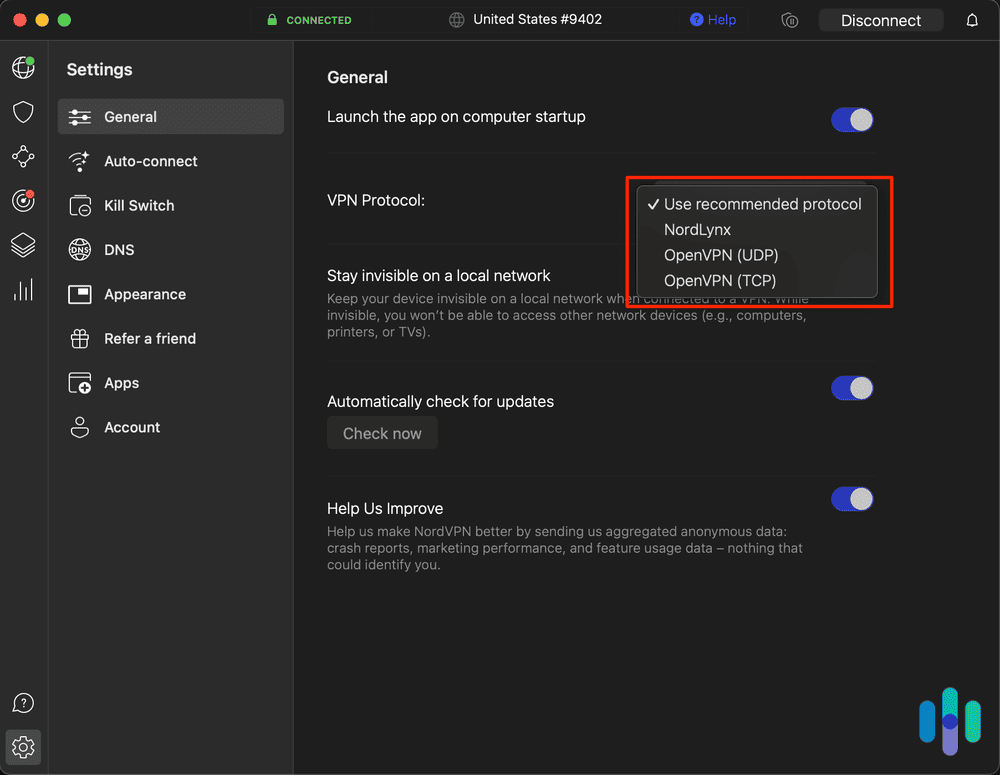
That being said, the UAE has some stricter laws when it comes to VPN use. As mentioned earlier, using a VPN to commit or hide a crime is illegal, the penalty of which is imprisonment and a fine no less than AED 500,000, which is equivalent to around $135,000. As such, beyond learning how to use a VPN, internet users in the UAE must learn how to use a VPN without breaking the law.
This goes without saying, but things like illegal online gambling, fraud and scamming other people, cyberbullying, selling and buying of illegal substances, and pornography are illegal pretty much everywhere, so avoid those at all cost. Also, in the UAE, using some VoIP and communication services can get you in legal trouble. For example, FaceTime is not available in the country, and so are Skype and Zoom. The UAE also blocks dating websites as well as websites that may be considered offensive to religions.
How To Access More Streaming Content With A VPN
Streaming is another topic. Streaming sites like Netflix are allowed in the UAE, but the country’s cyber laws limit the available content. According to reports, the UAE Netflix has only about 800 titles compared to the over 8,000 titles available on Netflix U.S. That’s a severely limited selection, but watching Netflix with a VPN can actually help you unlock more content. Connecting to a U.S. server, for example, will give you a U.S. IP address and access to Netflix U.S. titles. Just make sure to use a good VPN for streaming to avoid buffering.
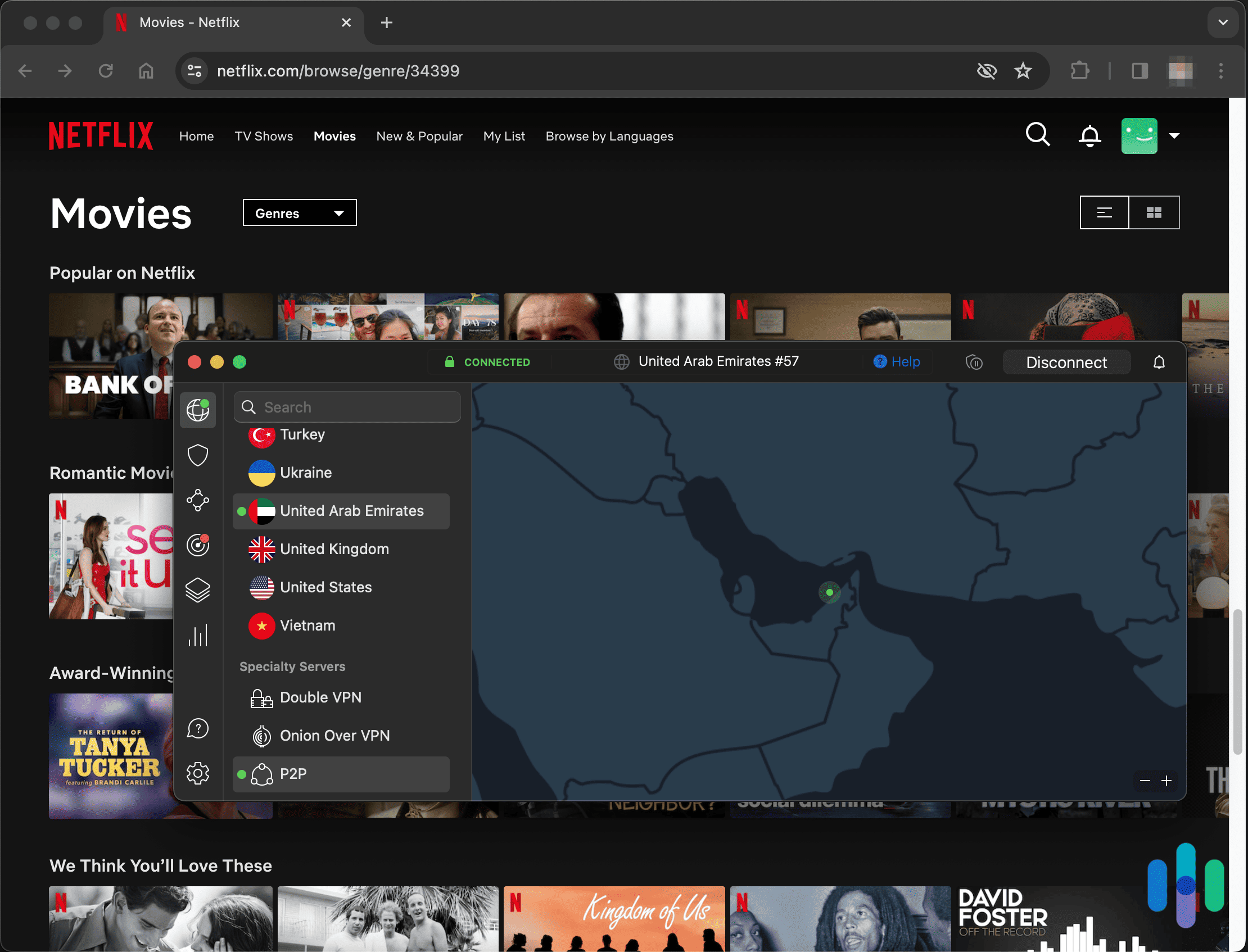
How To Troubleshoot A VPN In The UAE
Even if you choose a good VPN, however, chances are it’s going to have trouble connecting for one reason or another. That’s a particular concern in the UAE, especially with ISPs blocking some VPN connections.
If you have a VPN that’s working before but has stopped working, here are a few possible ways to troubleshoot it.
- Try a different connection: If you’re connected to your home Wi-Fi, try connecting your device to a mobile hotspot or cellular data. If it worked, that means the problem is with your internet provider. You may contact your VPN provider with details about the issue (i.e. tell them the VPN might be blocked by the ISP) and they might be able to help you fix it.
- Try a different protocol: At the moment, OpenVPN is the most reliable protocol to use in the UAE, but this might change in the future. If you’re using OpenVPN, try a different VPN protocol like WireGuard or IKEv2. You may also ask your VPN provider to recommend a VPN protocol that works in the UAE.
- Choose a different server: If you’re trying to unblock a website but the VPN can’t do it while connected to a server in the UAE, try a different server. Ideally, try a server outside the UAE.
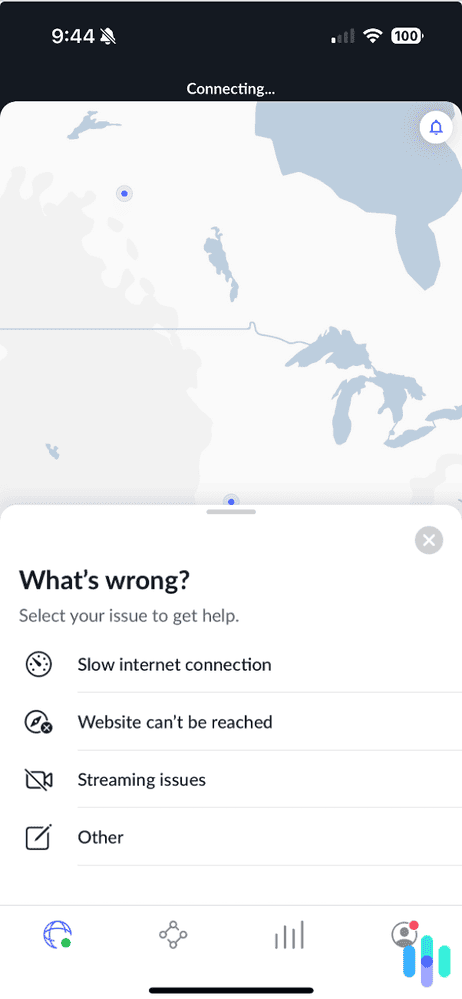
>> More Info: Troubleshooting and Fixing VPN Issues
Free VPNs: Will They Work in the UAE?
Another question we frequently get regarding using VPNs in the UAE is whether or not free VPNs will work. And based on our research, they could. As long as the free VPN offers the OpenVPN protocol and 256-bit AES encryption, it could work in the UAE.
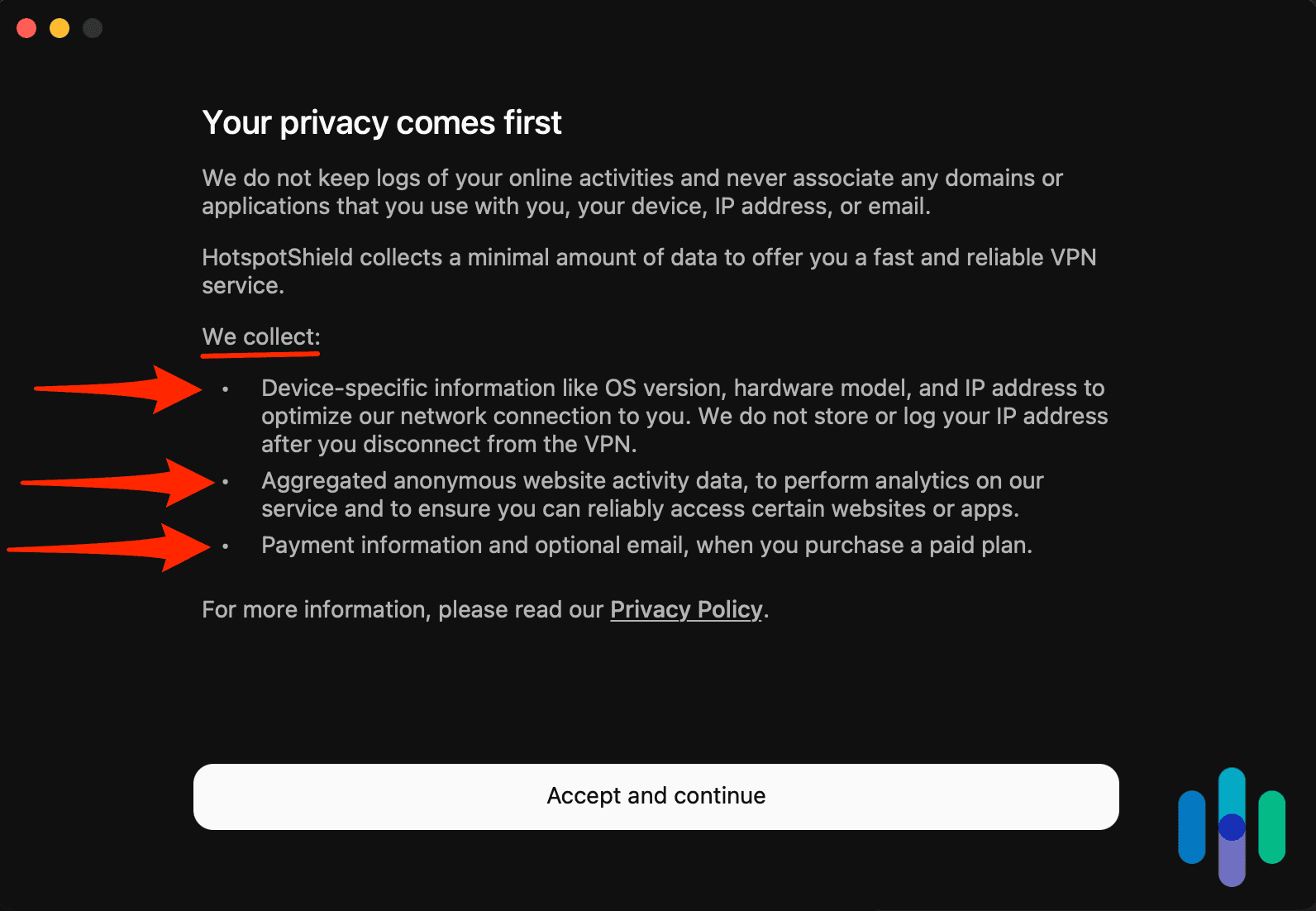
One thing to remember, however, is that not all free VPNs are safe to use. We’ve come across dozens of VPNs that are not secure or are abysmally slow. There are also free VPNs that are actually unsafe to use, like the Hola VPN we tested recently. Their premium VPN is solid, but the free version borrows resources from users (e.g their IP address and bandwidth) to offer a community-based free VPN. Those types of VPNs come with risks.
If you want a safe but free VPN to use in the UAE, we have a list of the best free VPNs right here.
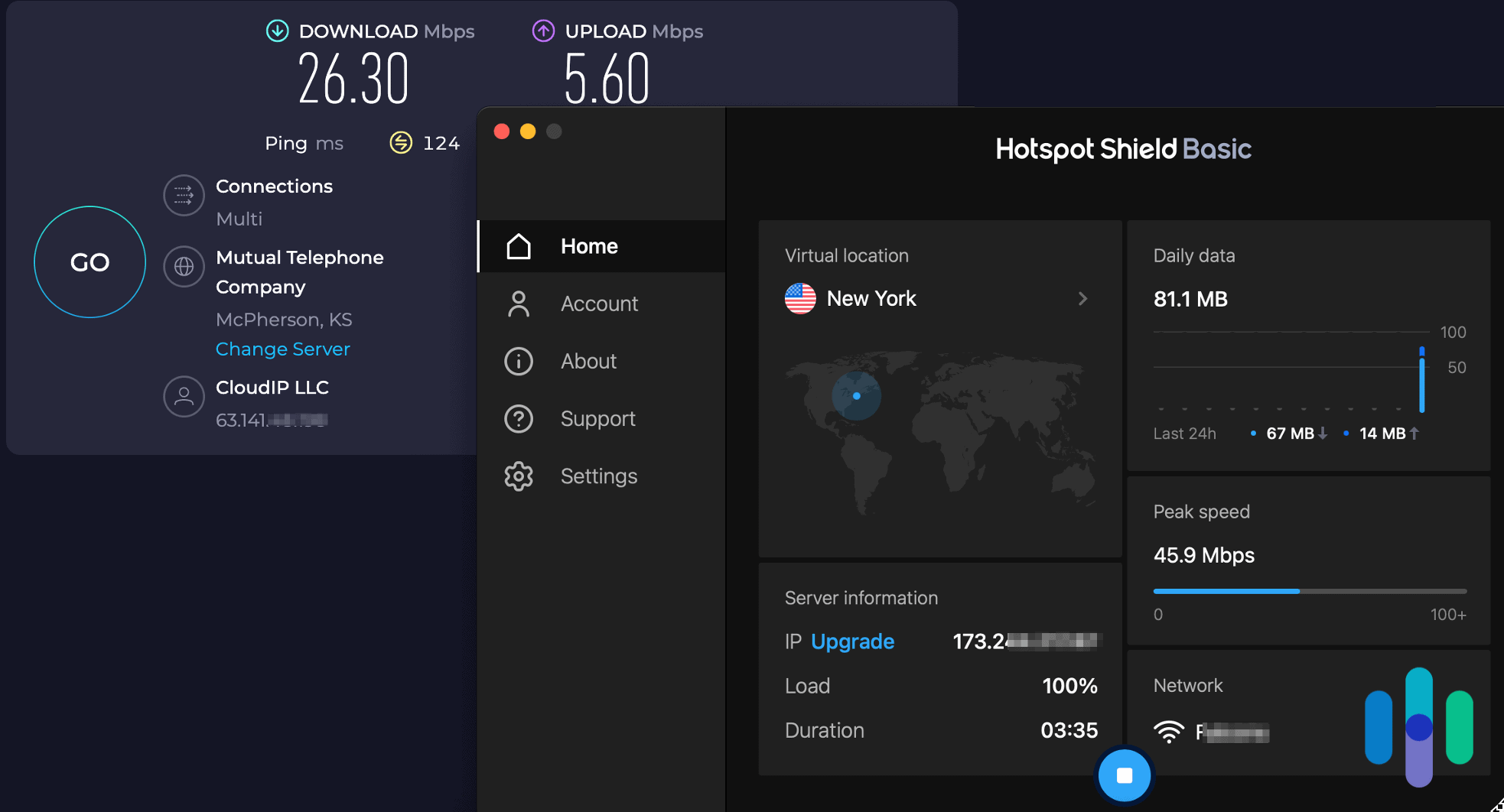
Conclusion: Should You Always Use A VPN In The UAE?
In today’s world, using a VPN is a must wherever you are. Even here in the U.S. where there is arguably more online freedom, we always use a VPN when connecting to the internet. That is because pretty much anything we do online can compromise our privacy.
Much like stateside, ISPs in the UAE have access to user browsing data. That, alone, can endanger your privacy. Furthermore, if we take into account the amount of data websites, search engines, and services collect and process, we realize that the free services we’re using on a daily basis aren’t actually free. We’re paying for them in the form of our own privacy.
You can protect yourself by using a VPN, so yes, whenever you’re connecting to the internet, we recommend turning on your VPN. And if you don’t have a VPN yet, the five we recommended above are the best ones to use in the UAE.
FAQs
Have questions about VPNs in the United Arab Emirates? These are our answers to some of the most commonly asked.
-
Are VPNs legal in the United Arab Emirates?
VPNs are absolutely legal in the United Arab Emirates.
-
How can I get a VPN in the United Arab Emirates?
The easiest way to get a VPN in the United Arab Emirates is to sign up online with a company that operates in the country, including any of the five listed here: NordVPN, Surfshark, Private Internet Access, ExpressVPN, and ProtonVPN.
-
Which VPNs operate in Dubai?
A number of companies operate VPN servers in Dubai. The best ones we found were NordVPN, Surfshark, Private Internet Access, ExpressVPN, and Proton VPN.
-
Can my online activities be tracked if I use a VPN?
Assuming your VPN has no leaks and that the company you use has a no activity logging policy, your online activities cannot be tracked if you use a VPN.
-
Why do I need a VPN in the United Arab Emirates?
A VPN is a simple and effective way to get around internet censorship in the UAE. Otherwise, you might not be able to use your favorite apps and websites on your trip. The country blocks political content, gambling sites, and messaging services.
Freedom House. (2023). About Us.
freedomhouse.org/about-usFreedom House. (2023). FREEDOM ON THE NET 2023: United Arab Emirates.
freedomhouse.org/country/united-arab-emirates/freedom-net/2023WinZip. (2023). What is military grade encryption and does your organization need it?
blog.winzip.com/military-grade-encryption/NordVPN. (2023). NordVPN Has Completed an Industry-First Audit of Its No-Logs Policy.
nordvpn.com/wp-content/uploads/2020/01/13-12-2018_NordVPN-Has-Completed-an-Industry-First-Audit-of-Its-No-Logs-Policy.pdf


